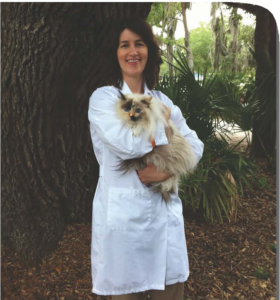
So, you or someone you know wants to be a veterinarian…
That’s great! It can be a rewarding career choice, but before you make the long commitment of going to veterinary school, it’s important to know that day-to-day veterinary life might be different from what you expect.
For anyone interested in a veterinary career, here are a few things to keep in mind:
1. At least 50 percent of my job – if not more – is working with people, not animals.
Most veterinarians choose their career because of a love of animals. But the truth is, animals can’t bring themselves in for treatments. There’s always a human (often several humans) involved.
I can’t emphasize this enough: as much as you enjoy seeing the animal, the HUMAN is the one you must communicate with. And you must be able to effectively communicate delicate subjects, such as finances and billing, giving bad news about medical conditions, and explaining the risks of any medical procedures.
2. You’ll see pets in pain on a regular basis.
Sure, we see plenty of “well” and “routine” visits, too, especially as general practitioners. But you need to be prepared to see sick, suffering, severely injured, and dying animals. Of course, you’ll do your best to help them – but sometimes, you’ll see animals that have been suffering for a long time without intervention, and it can break your heart to think about what they’ve been through.
I’m sure that on an intellectual level you already know this, but the reality of being around pain and suffering on a regular basis can be more difficult than you might imagine. If you love animals, believe me when I say that this part of the job is NOT easy.
3. You should be passionate about animals AND medicine.
“Medicine” encompasses a lot of different aspects, including the latest techniques and information on preventive care (plan to have the same conversation about vaccines and parasite prevention over and over again, at least a few times every day), surgery and anesthesia, nutrition, wound care, and pharmaceuticals.
You’ll also want to be well-versed in internal medicine, care for trauma and emergencies, and have a working knowledge of many other specialties ranging from obstetrics to dermatology to dentistry. If you’re not passionate about this part of the job, it can feel like a lot to keep up with.
4. You need to have a strong stomach.
Even if you’re a general practitioner, clients will bring severely injured animals to see you. Be prepared to deal with blood, gaping wounds and missing flesh, broken bones, and other serious, gory injuries. I’ve built up a pretty strong tolerance over the years, but even I still occasionally see wounds that make my stomach lurch.
And besides seeing painful injuries, you’ll see (and smell) a lot of unpleasant things. Expect to encounter blood, pus, snot, drool, urine, vomit, diarrhea – and of course, anal gland discharge – on a weekly, if not daily, basis.
5. The pay isn’t what you think it is…
This New York Times article explains it better than I can. The skyrocketing school tuition, combined with salaries that aren’t increasing to match it, can make for a challenging start in this career. Student loan payments of over $1,000 per month are not uncommon. Depending on your personal circumstances, this can feel like a huge financial and emotional burden.
All this being said, don’t be discouraged from pursuing a career as a veterinarian. It can be a great job. The good days, and the patients you save, can make all the difficult days well worth it. I only suggest that you go into the field with “both eyes open.”
To get a better feel for what a veterinary career is really like, I always recommend working at a clinic or hospital. And I don’t just mean volunteer for a few days. Really get into the thick of it, in a position where you’ll be talking to clients, or involved in the daily operations of the practice. Consider a position as a receptionist or veterinary assistant.
After this, if you do decide to move forward in your decision to be a veterinarian this “real-life” work experience will be valuable, because it allows the information in veterinary school to sink in faster.
If, on the other hand, you find out it’s not a good fit for you, well then, at least you know for sure. Either way you’ll be able to make the best decision for you.
The views and opinions expressed in this article are those of the author and do not necessarily reflect the position of the DrAndyRoark.com editorial team.
 ABOUT THE AUTHOR
ABOUT THE AUTHOR
Dr. Tammy Powell is a veterinarian currently working as a writer and content specialist for the pet and veterinary fields. You can find her at PetCopywriter.com. When she’s not working, you’ll find her reading, traveling, or spending time with her cats.